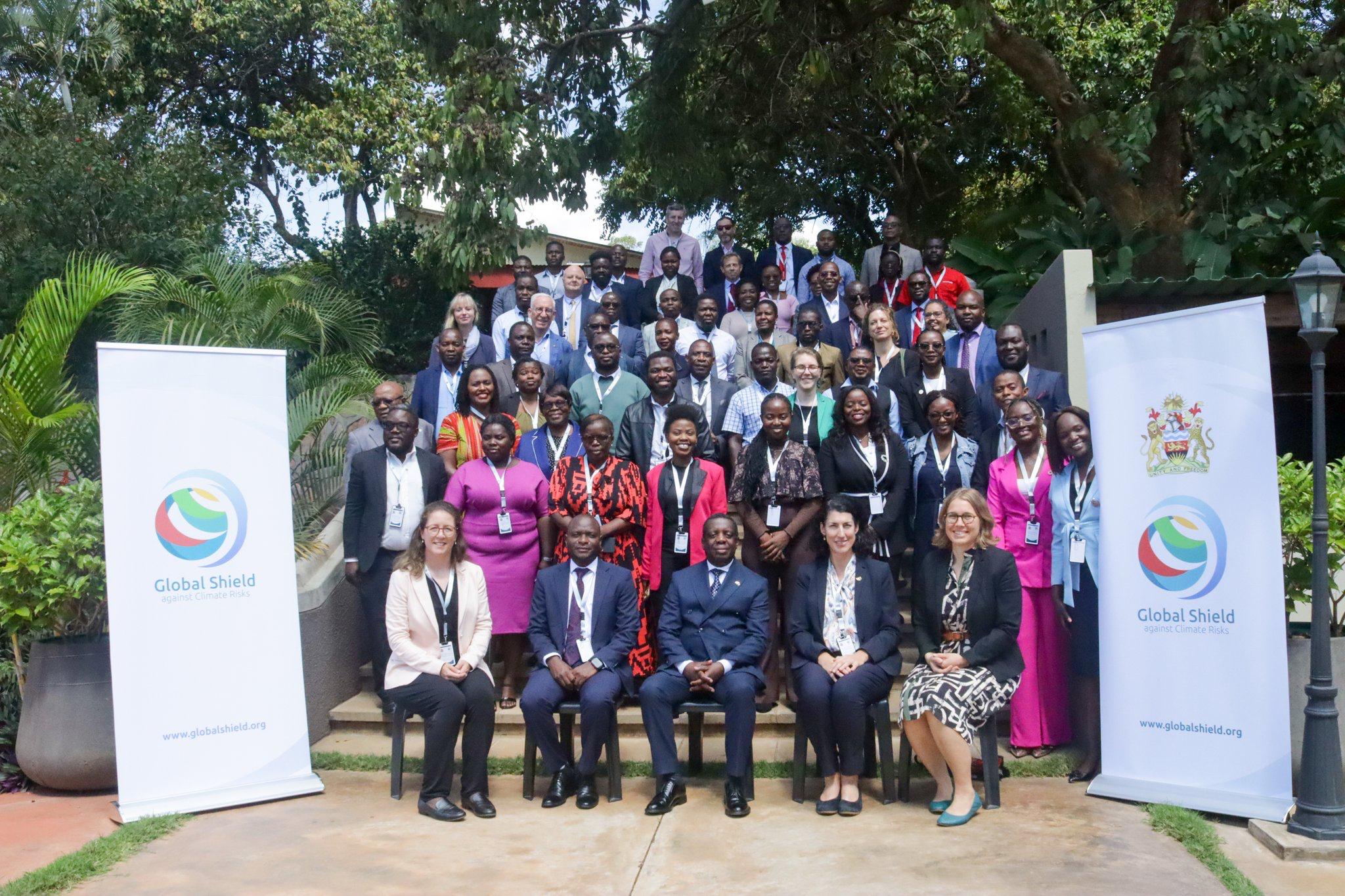Malawi gears up to unlock access to Global Shield

Lilongwe, Malawi | April 30, 2025—The Republic of Malawi continues its groundwork to develop an evidence-based Climate and Disaster Risk Finance and Insurance (CDRFI) support request to the Global Shield with the completion of its Stocktake Report and Gap Analysis.
With a funding stream of €350 million, Global Shield is active in 16 countries across Africa, Asia Pacific, and Latin America, ensuring an increased financial protection cooperation, strengthened coordination mechanism within the global CDRFI architecture, and scaled-up smart premium and capital support.
In Malawi, the in-country process, a country-led effort of identifying financial protection gaps and targeted support packages, was launched in July 2024 spearheaded by the Ministry of Finance and Economic Affairs and supported by the Global Shield Secretariat and the University of Malawi.

Stocktake findings in Malawi
A comprehensive review of Malawi’s existing pre-arranged financing mechanisms revealed key challenges in its disaster risk financing landscape, including weak institutional coordination, limited local government capacity, and insufficient insurance coverage. To address these gaps, the report suggests strengthening public-private partnerships, streamlining coordination frameworks, and enhancing local government capacity.
It also highlighted various initiatives at the macro, meso, and micro levels. At the macro level, programs like the Malawi Social Support for Resilient Livelihood Social Protection Programme, Mthangati, and World Food Programme’s R4 Rural Resilience Initiative.
The report findings guided Malawi’s Gap Analysis and will later outline its CDRFI outlook.
Malawi’s gap analysis and advocacy considerations
In April 2025, Malawi conducted a two-day workshop to analyze risk modelling and analytics, climate risk financing, just transition priorities, civic oversight, and national frameworks.
Key stakeholders such as the Embassy of Ireland, GIZ, Trocaire, UNICEF, WFP, World Bank, FAO, Insurance Association of Malawi, Civil Society Network on Climate Change, Malawian Universities, Government Ministries, and the Global Shield Secretariat, joined the gap analysis deep dive sessions in Lilongwe, Malawi.
The discussion explored how risk modelling can be grounded through locally sourced data, ensuring that risk financing mechanisms are co-designed and implemented with grassroots consultations and community-based structures.
It also advocates for grant-based, predictable financing, pro-poor, and inclusive targetting that could truly address the needs and realities of marginalized groups. This includes gender-responsive and socially inclusive funding allocations, ensuring direct support to local resilience-building efforts and cooperatives.
The gap analysis anchors on the existing national frameworks such as Malawi’s Long-Term Vision 2063 and Just Transition Strategy, National Climate Change Policy, National Adaptation Plan, and Nationally Determined Contributions. Emerging from the discussion is the need to support clean energy solutions, and promote agroecological practices, community-based natural resource management, green job creation, and low-carbon livelihoods.
Malawi is approaching the final stage of the in-country process, marked by the official submission of its Request for Support to the Global Shield, based on the financial protection needs identified in the earlier Stocktake Report and Gap Analysis. All of this is in pursuit of the vision of increasing protection for poor and vulnerable people through better pre-arranged finance against disasters.
This article is featured in our May newsletter. Click here to read the full issue.
___
About the Author
Tarcizio Kalaundi, a CVF-V20 Youth Fellow, is a climate change and geospatial science professional. He works with Trocaire Malawi as a Programme Officer for resilience and livelihoods, fostering nature-based solution systems and disaster resilience programming for communities vulnerable to climate change impacts.
